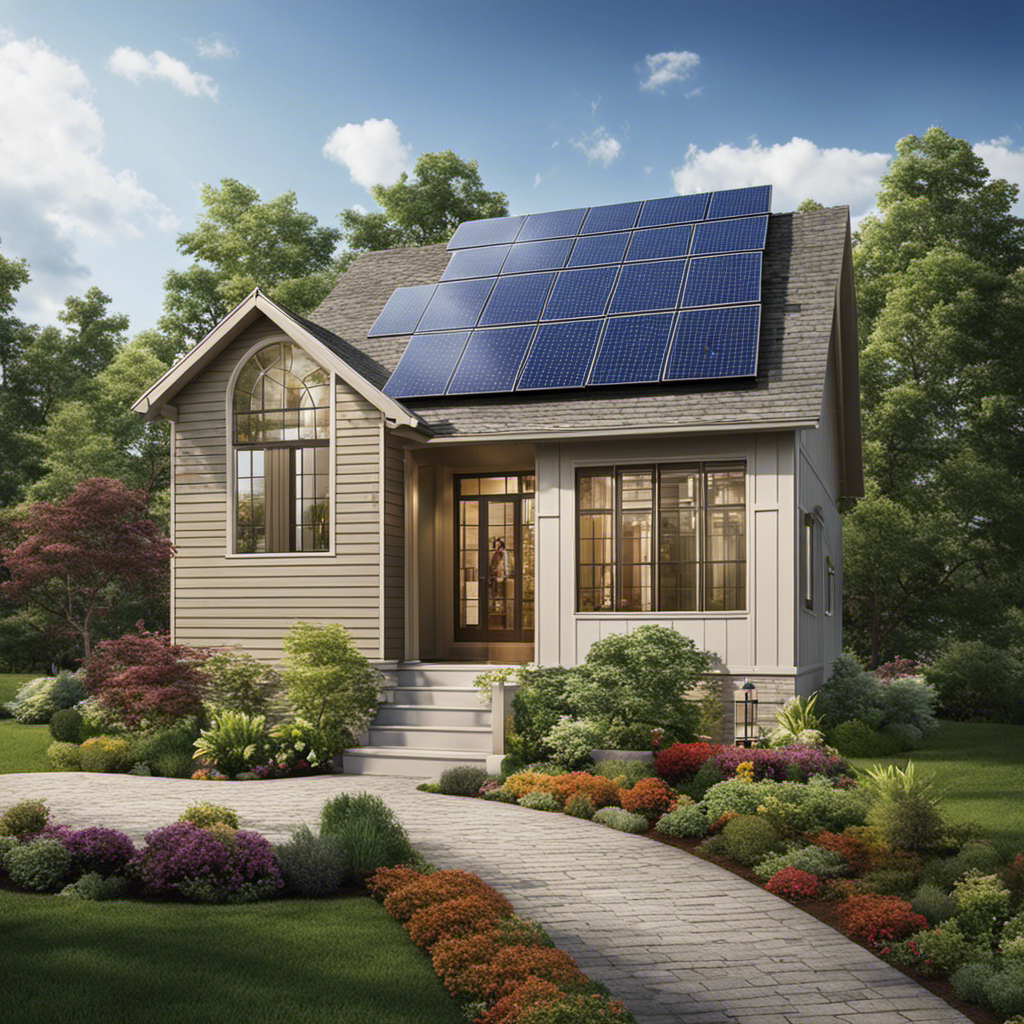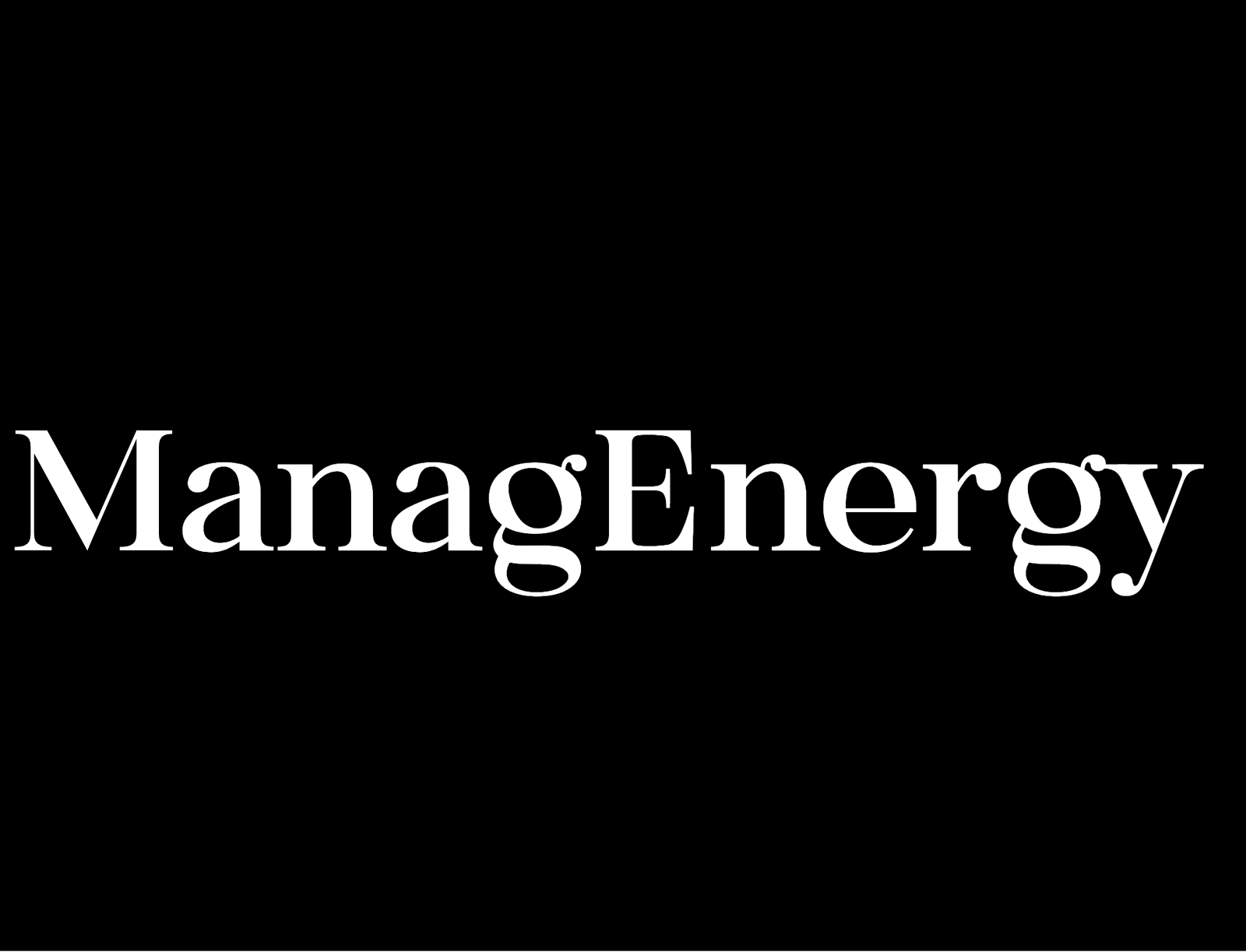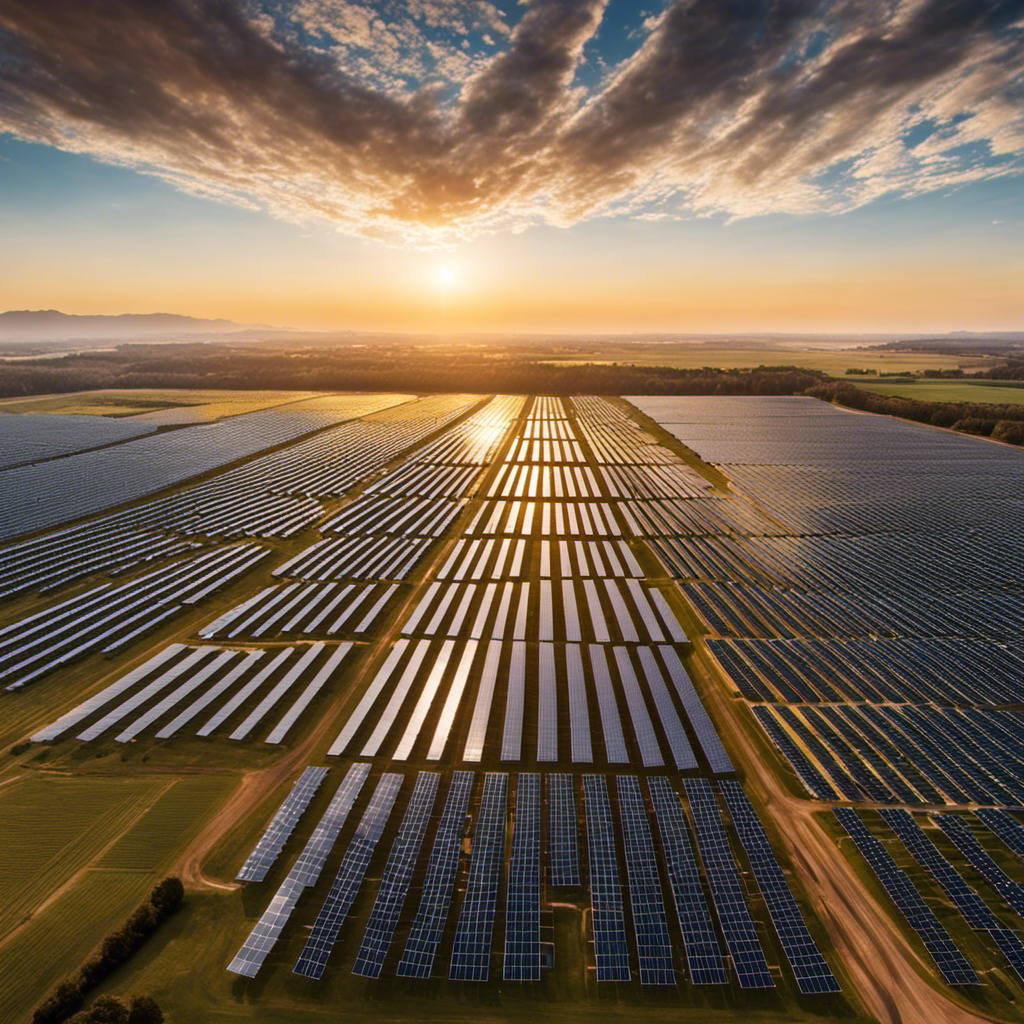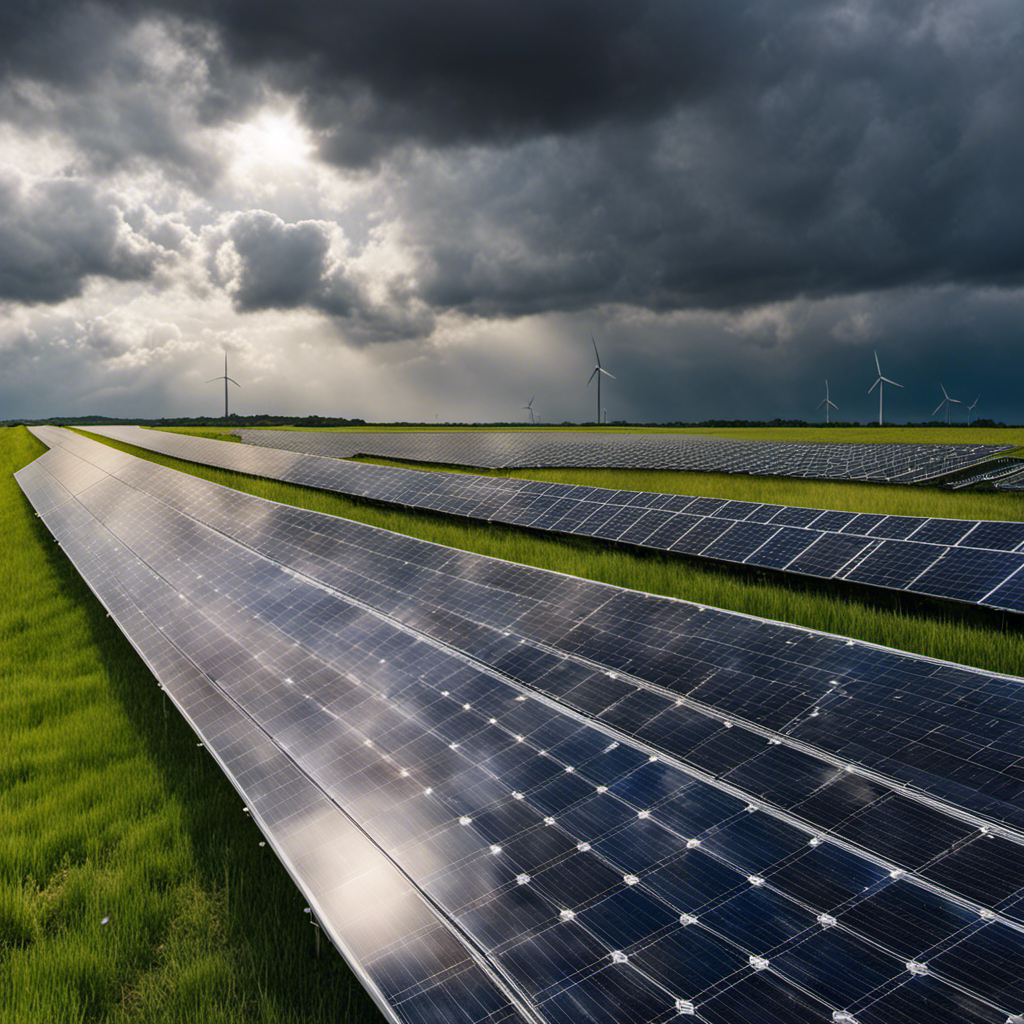Energy Efficient
Maximizing Energy Efficiency: Calculating and Certifying Home Performance

As someone who owns a home, I understand the importance of enhancing energy efficiency to cut down on expenses and to lessen our impact on the environment. In this piece, we’ll explore the techniques and advantages of measuring and certifying the performance of a house.
Using energy efficiency calculators and smart home energy management systems, we can identify areas for improvement and monitor consumption.
The importance of energy efficiency certification cannot be overstated, as it not only reduces energy costs but also enhances the value of residential and commercial properties.
Let’s explore the world of energy efficiency and start making a positive difference today.
Key Takeaways
- Energy efficiency calculators can be used to identify areas for improvement in home performance.
- Having an energy efficiency certification, such as an Energy Performance Certificate (EPC), is crucial when renting or selling a property.
- Solar power offers cost-effective and sustainable solutions for reducing energy costs and carbon footprint.
- Professional assistance, such as EPC assessors and HERS raters, can provide detailed analysis and recommendations for maximizing energy efficiency in homes.
Energy Efficiency Calculation Methods
I use an energy efficiency calculator to identify areas for improvement in my home’s energy efficiency. This tool allows me to estimate the average electricity use of appliances and multiply it by the electricity rate.
By monitoring and controlling appliances and electronics through a smart home energy management system, I can further optimize my energy consumption.
Another method I employ is the Home Energy Rating System (HERS), which represents the efficiency of my home. HERS index scores are calculated using computer programs like REM/Rate. Additionally, loading floor plans into programs helps determine energy efficiency.
Insulation improvements play a significant role in energy savings, both in residential and commercial buildings. By ensuring proper insulation, I can minimize heat transfer and reduce the need for heating and cooling, resulting in substantial energy savings.
Importance of Energy Efficiency Certification
Having an energy efficiency certificate is crucial when selling or renting a property. It provides numerous benefits, including reducing energy costs and carbon footprint.
The government plays a significant role in promoting energy efficiency through certification programs and regulations. Here are three key benefits of energy efficiency certification:
-
Increased Property Value: An energy efficiency certificate demonstrates that the property meets certain standards, making it more attractive to potential buyers or renters. This can lead to increased property value and faster sales or rentals.
-
Lower Energy Costs: Energy efficiency certification encourages homeowners to implement energy-saving measures, resulting in lower energy consumption and reduced utility bills. This not only saves money but also contributes to environmental sustainability.
-
Government Incentives: Governments often provide financial incentives, such as tax credits or grants, to encourage energy efficiency improvements. Energy efficiency certification makes homeowners eligible for these incentives, further motivating them to invest in energy-saving upgrades.
Solar Power Benefits
Solar power in Florida offers a cost-effective and sustainable solution to reduce electricity bills and carbon footprint. With the state’s abundant sunshine, solar power installation is a practical choice for homeowners and businesses.
In addition to reducing electricity costs, solar power also has environmental benefits by decreasing reliance on fossil fuels and lowering greenhouse gas emissions. The government provides incentives for solar, such as tax credits and rebates, to encourage the adoption of renewable energy. These incentives can significantly reduce the upfront costs of solar panel installation and make it more accessible for consumers.
Lunar Solar Power
Exploring the concept of Lunar Based Solar Power (LSP), the potential to illuminate Earth’s nights with the Moon as a giant flashlight is being researched. This innovative approach to solar power involves harnessing the energy from the Sun that is reflected off the lunar surface and directing it towards Earth.
Although LSP is not currently capable of powering appliances, it offers unique possibilities for various applications. Lunar solar power research aims to understand the feasibility of this technology and develop ways to optimize its efficiency.
Professional Assistance for Energy Efficiency
As a homeowner, I highly recommend hiring a professional for accurate results when assessing the energy efficiency of your property. Certified energy auditors have the expertise to conduct thorough home energy audits and provide detailed analysis and recommendations.
These professionals can identify overlooked details that may contribute to energy inefficiency, such as heat loss from chimneys or worn seals on windows. By utilizing their knowledge and specialized equipment, they can accurately calculate HERS index scores and help meet building code requirements.
Home energy audits are essential in determining the energy efficiency of your home, which can lead to significant cost savings and a reduced carbon footprint. So, don’t hesitate to seek the help of certified energy auditors for a comprehensive assessment of your property’s energy performance and recommendations for improvement.
Energy Efficiency Calculator
When using an energy efficiency calculator, I can quickly identify areas in my home that need improvement. This tool allows me to estimate energy savings and reduce my carbon footprint.
Here are three key benefits of using an energy efficiency calculator:
-
Accurate Estimation: The calculator utilizes data on energy consumption and efficiency ratings of appliances to estimate potential energy savings. It takes into account factors like usage patterns, insulation, and weather conditions to provide accurate estimates.
-
Targeted Improvements: By identifying areas of high energy consumption, I can prioritize improvements to reduce energy waste. This may include upgrading to energy-efficient appliances, improving insulation, or sealing air leaks.
-
Environmental Impact: Reducing my carbon footprint is a crucial aspect of energy efficiency. The calculator helps me understand how my energy usage contributes to carbon emissions and provides recommendations to minimize environmental impact.
Estimating Average Electricity Use
To estimate my average electricity use, I multiply the electricity rate by the estimated electricity consumption of my appliances. This calculation allows me to have a better understanding of my energy consumption and helps me identify areas where I can make energy-saving measures.
By estimating electricity savings, I can make informed decisions about implementing energy-efficient practices in my home. These measures may include replacing old appliances with energy-efficient models, using smart home energy management systems to monitor and control my appliances, and optimizing the energy efficiency of my HVAC system.
Additionally, I can seek professional assistance to conduct a home energy audit and receive recommendations for energy-saving measures specific to my home. By implementing these recommendations, I can reduce my energy consumption, lower my electricity bills, and contribute to a more sustainable future.
Smart Home Energy Management Systems
I can optimize my energy usage by using a smart home energy management system. With the advancement of smart home automation, energy saving devices have become more accessible and efficient. Here are three ways a smart home energy management system can help maximize energy efficiency:
-
Energy monitoring: A smart home energy management system allows you to track and analyze your energy consumption in real-time. By identifying energy-hungry appliances and making informed decisions, you can reduce wasteful energy usage.
-
Intelligent scheduling: With smart home automation, you can schedule your appliances to run during off-peak hours when electricity rates are lower. This helps to minimize energy costs while ensuring your devices are still functioning optimally.
-
Remote control: A smart home energy management system enables you to control your appliances remotely. You can turn off devices that are not in use or adjust their settings to consume less energy, even when you are away from home.
Home Energy Rating System (HERS
In the realm of energy efficiency, one important tool for assessing the performance of a home is the Home Energy Rating System (HERS). In this subtopic, I will delve into the intricacies of this system and how it can help homeowners maximize their energy efficiency.
When it comes to calculating the accuracy of the HERS index, computer programs like REM/Rate are used. These programs take into account various factors such as the home’s insulation, HVAC system, and appliances to generate a numerical score. This score represents the energy efficiency of the home, with lower numbers indicating higher efficiency.
Comparing HERS index scores can be incredibly informative for homeowners. By analyzing these scores, one can identify areas where improvements can be made to enhance energy efficiency. Additionally, comparing scores can help homeowners gauge the effectiveness of energy-saving measures they have implemented.
Overall, the HERS system provides a valuable framework for assessing and improving the energy efficiency of homes. With accurate calculations and score comparisons, homeowners can make informed decisions to maximize their energy efficiency and reduce their carbon footprint.
Calculation of HERS Index Scores
Using computer programs like REM/Rate, accurate HERS index scores can be calculated, providing valuable insights into a home’s energy efficiency. The HERS index is a standardized method for measuring a home’s energy performance, with lower scores indicating higher energy efficiency. Calculating HERS index accuracy is crucial in evaluating a home’s energy-saving potential and identifying areas for improvement. By accurately assessing a home’s energy efficiency, homeowners can make informed decisions about energy-saving upgrades and reduce their carbon footprint.
Benefits of solar energy in commercial buildings:
- Cost savings: Solar power can significantly reduce electricity bills, leading to long-term cost savings for commercial buildings.
- Environmental sustainability: Solar energy is a clean and renewable source of power, reducing reliance on fossil fuels and decreasing carbon emissions.
- Improved reputation: By incorporating solar energy, commercial buildings can enhance their sustainability image and attract environmentally conscious customers and tenants.
Floor Plans and Energy Efficiency
By analyzing floor plans, I can identify potential areas for energy improvement and make informed decisions about optimizing energy usage in a home or building.
When it comes to energy efficiency, there are two key factors to consider: lighting and building materials. Energy efficient lighting options, such as LED bulbs, can significantly reduce energy consumption. These bulbs use less energy and last longer than traditional incandescent bulbs.
Additionally, energy efficient building materials play a crucial role in reducing energy waste. Materials like double-pane windows, insulation, and reflective roofing can help regulate temperature and minimize heat loss or gain.
Electricity Usage and Energy Inefficiency
When I monitor my electricity usage, I can identify areas where energy is being wasted. Conducting an electricity consumption analysis is crucial in identifying energy-saving strategies.
Here are three key points to consider:
-
Identify high-energy-consuming appliances: By monitoring your electricity usage, you can identify appliances that consume a significant amount of energy. This allows you to prioritize energy-saving measures for these appliances or consider replacing them with more energy-efficient models.
-
Analyze usage patterns: Understanding how and when you consume electricity can help you identify patterns that contribute to energy inefficiency. For example, if you notice a spike in energy usage during certain times of the day, you can adjust your habits or implement strategies to reduce energy consumption during those periods.
-
Implement energy-saving measures: Once you have identified areas of energy inefficiency, you can take proactive steps to save energy. This can include simple measures such as turning off lights and appliances when not in use, using energy-efficient lighting and appliances, and optimizing the settings on heating and cooling systems.
Professional Energy Raters
When it comes to maximizing energy efficiency in your home, it’s essential to rely on the expertise of certified assessors. These professionals have the knowledge and tools to conduct a thorough heat loss analysis, identifying areas where your home may be losing valuable energy.
By inspecting elements such as chimneys and windows, assessors can pinpoint potential heat loss and recommend effective solutions, such as sealing worn seals or improving insulation. Their detailed analysis provides homeowners with valuable information on how to improve energy efficiency, meet building code requirements, and ultimately save on energy costs.
Hiring a professional energy rater ensures accurate results and allows you to make informed decisions about energy-saving measures. Don’t overlook the expertise of these certified assessors when it comes to maximizing the energy efficiency of your home.
Hiring a Professional for Accurate Results
Hiring a professional energy rater ensures I receive accurate results and valuable recommendations for improving my home’s energy efficiency. An energy efficiency audit conducted by a professional helps identify areas of improvement and potential energy savings. Here are three key benefits of hiring a professional for an energy efficiency audit:
-
Expert Analysis: A professional energy rater has specialized knowledge and tools to accurately assess your home’s energy performance. They can identify areas of energy inefficiency that may be overlooked and provide detailed analysis.
-
Customized Recommendations: Based on the audit findings, a professional energy rater can provide personalized recommendations for energy-saving measures. These recommendations can range from simple changes like weatherstripping and insulation upgrades to more complex solutions like HVAC system optimization.
-
Cost Savings: By implementing the recommended energy-saving measures, you can significantly reduce your energy consumption and lower your utility bills. The upfront cost of hiring a professional energy rater is often outweighed by the long-term cost savings achieved through improved energy efficiency.
Overall, hiring a professional energy rater for an energy efficiency audit is a wise investment that can lead to substantial energy savings and a more environmentally-friendly home.
Frequently Asked Questions
What Are the Benefits of Having an Energy Efficiency Certificate for a Property?
Having an energy efficiency certificate for a property offers several benefits.
Firstly, it provides credibility and assurance to potential buyers or tenants, showcasing the property’s energy-saving features.
Secondly, it can lead to energy efficiency incentives and tax credits, resulting in cost savings for the homeowner.
Additionally, calculating the energy efficiency of a property helps identify areas for improvement, allowing homeowners to reduce energy consumption, lower utility bills, and minimize their carbon footprint.
Overall, an energy efficiency certificate is crucial for promoting sustainable and cost-effective living.
How Can Solar Power Help Reduce Reliance on Traditional Cooling Systems?
Solar power offers a sustainable solution for reducing reliance on traditional cooling systems. By harnessing the sun’s energy, solar panels can power cooling systems, reducing the need for electricity from fossil fuels.
This not only helps in reducing carbon emissions but also provides a cost-effective and environmentally friendly cooling solution.
With advancements in technology, solar cooling has become more efficient, making it an attractive option for those looking to maximize energy efficiency and minimize their environmental impact.
What Are Some Advancements in Technology That Have Made Solar Cooling More Efficient?
Advancements in technology have greatly improved solar cooling efficiency. Newer systems utilize advanced absorption or desiccant cooling technologies, which enhance the overall performance. These systems have higher coefficient of performance (COP) values, meaning they can cool a space more effectively with less energy consumption.
Additionally, the integration of smart controls and sensors allows for precise monitoring and optimization of solar cooling systems. This ensures that the cooling output matches the cooling demand, maximizing energy efficiency and reducing operational costs.
How Does Lunar Solar Power Have the Potential to Illuminate Earth’s Nights?
Lunar solar power, a concept that harnesses moonlight for renewable nighttime illumination, has the potential to illuminate Earth’s nights. While it may sound like something out of a science fiction novel, researchers are exploring the idea of using the Moon as a giant flashlight.
Although not enough to power appliances, lunar solar power offers unique possibilities for creating a more sustainable future. Ongoing research and development in this field are paving the way for innovative solutions in the realm of energy efficiency.
What Are Some Additional Services That Professional Energy Assessors or Auditors Can Provide for Improving Energy Efficiency in a Home?
Some additional services that professional energy assessors or auditors can provide for improving energy efficiency in a home include conducting comprehensive energy audits, identifying areas of heat loss or air leakage, and recommending energy-saving measures.
They can also help meet building code requirements, assess the efficiency of appliances and HVAC systems, and provide guidance on energy-efficient upgrades.
Additionally, they have the expertise to calculate the Home Energy Rating System (HERS) index scores.
These professionals play a crucial role in maximizing energy efficiency and reducing energy costs in a home.
Conclusion
In conclusion, maximizing energy efficiency in homes is crucial for reducing energy costs and carbon footprint. By using energy efficiency calculators and seeking professional assistance, homeowners can accurately identify areas for improvement and make informed decisions.
An interesting statistic to note is that solar power can reduce electricity bills by up to 70%, providing a cost-effective and sustainable solution in sunny regions like Florida.
Additionally, ongoing research on lunar solar power offers exciting possibilities for illuminating Earth’s nights using the Moon as a giant flashlight.
By prioritizing energy efficiency and exploring renewable energy sources, we can create a more sustainable and environmentally friendly future.
Energy Efficient
Understanding Home Energy Usage and Costs

Exploring the realm of domestic energy usage and expenses feels like uncovering an intriguing mystery. It’s akin to examining the complex components of a clock, unraveling the elements influencing our energy use and their effects on our finances.
From the size of our homes to the appliances we rely on, every piece plays a role.
So, join me on this journey of unraveling the complexities and gaining a deeper understanding of how our energy usage translates into costs.
Key Takeaways
- The average American household consumes around 11,700 kWh of electricity each year.
- The size of a home, the number of people in it, and the number of appliances all impact electricity usage.
- Electricity rates vary by state and time of day, with residential rates varying widely from state to state.
- Unnecessary electricity use can increase bills, so it’s important to be aware of usage and turn off unused appliances.
Factors Affecting Home Energy Usage
Factors that affect home energy usage include the size of the home, the number of people living in it, and the number of appliances being used.
Home energy efficiency plays a crucial role in determining the overall energy consumption. Homes that are poorly insulated or have outdated appliances tend to use more energy. On the other hand, modern technology has had a significant impact on reducing energy usage in homes.
Energy-efficient appliances, such as smart thermostats and LED lights, consume less electricity while still providing the same level of performance. Additionally, advancements in insulation materials and construction techniques have improved the energy efficiency of homes.
The Impact of Home Size on Energy Costs
Living in a larger home means I’ll need to use more electricity for heating and cooling, which can increase my energy costs. To mitigate these costs, it is important to consider energy-efficient home design and insulation.
Insulation plays a crucial role in reducing energy consumption by minimizing heat transfer through walls, ceilings, and floors. Effective insulation can significantly lower heating and cooling needs, resulting in lower energy costs.
Additionally, energy-efficient home design incorporates features such as double-pane windows, energy-efficient appliances, and proper ventilation systems, further reducing energy usage.
Climate and Appliance Influence on Energy Usage
I can reduce my electricity bill by being mindful of my climate and the appliances I use. Climate change has a significant impact on energy usage and costs. In regions with extreme temperatures, such as hot summers or cold winters, the need for heating or cooling increases electricity consumption.
To mitigate this, I can consider using energy-efficient appliances that are designed to consume less electricity while providing the same level of comfort. Energy-efficient appliances use advanced technologies that reduce energy waste and lower electricity bills. These appliances are designed to meet strict energy efficiency standards, helping to reduce greenhouse gas emissions and combat climate change.
Understanding the Average Monthly Electricity Bill
The average monthly electricity bill varies based on location, climate, and the number of appliances used. It is important to understand these factors in order to manage energy usage and costs effectively.
Exploring energy efficient appliances can significantly reduce electricity consumption and subsequently lower monthly bills. These appliances are designed to maximize energy efficiency without compromising performance.
Understanding peak hour pricing is another crucial aspect of managing electricity costs. By being aware of the times when electricity rates are higher, consumers can adjust their usage patterns and avoid unnecessary expenses.
Peak hour pricing encourages consumers to shift their energy usage to off-peak hours, resulting in lower bills.
Overall, by incorporating energy efficient appliances and being mindful of peak hour pricing, individuals can take control of their electricity bills and make informed decisions for a more sustainable and cost-effective lifestyle.
Comparing Residential Electricity Rates by State
Pennsylvania’s average residential electricity rate of 16 C/kWh is 13% lower than the national average.
When comparing electricity rates internationally, it is important to understand the impact of weather on energy costs. Climate plays a significant role in determining electricity usage and therefore costs.
For example, in colder regions, the demand for heating increases, leading to higher electricity usage and costs. On the other hand, in warmer regions, the demand for cooling systems rises, resulting in increased electricity consumption.
Additionally, extreme weather events such as storms or heatwaves can further impact energy costs by causing power outages or increasing the need for air conditioning.
Tips for Reducing Unnecessary Electricity Use
To reduce unnecessary electricity use, it’s important to be mindful of our energy consumption and turn off appliances that are not in use. By making sustainable choices and investing in energy-efficient appliances, we can significantly reduce our energy usage and lower our electricity bills.
Here are three reasons why it’s crucial to prioritize energy efficiency:
-
Environmental Impact: Energy-efficient appliances consume less electricity, which helps reduce greenhouse gas emissions and combat climate change. By choosing energy-efficient options, we can contribute to a cleaner and healthier environment.
-
Cost Savings: Energy-efficient appliances may have a higher upfront cost, but they can result in significant long-term savings. These appliances consume less electricity, leading to lower energy bills and more money in our pockets.
-
Longevity and Performance: Energy-efficient appliances are designed to be more durable and reliable. They often have advanced features and technologies that improve performance, ensuring a better user experience.
Monitoring Electricity Usage for Cost Awareness
In my previous subtopic, I discussed tips for reducing unnecessary electricity use. Now, let’s shift our focus to monitoring electricity usage for cost awareness.
Tracking energy consumption and analyzing electricity usage patterns can provide valuable insights into our energy usage habits and help us make informed decisions to reduce costs.
By monitoring our electricity usage, we can identify which appliances or activities are consuming the most energy. This information allows us to prioritize energy-saving measures and make adjustments accordingly.
Analyzing electricity usage patterns can also help us understand the impact of different factors, such as weather conditions or changes in household occupancy, on our energy consumption.
There are various tools and technologies available to track and analyze electricity usage, such as smart meters and energy monitoring apps. These tools provide real-time data and visualizations that enable us to monitor our energy usage and identify opportunities for energy efficiency improvements.
Exploring Different Uses of Electricity
I’m fascinated by the various ways electricity can be utilized in our daily lives. It’s incredible to see the innovative uses of electricity that have emerged over the years.
One of the most exciting developments is the rise of electric vehicles, which offer a cleaner and more sustainable mode of transportation.
Another fascinating use of electricity is in renewable energy systems, such as solar panels and wind turbines, which generate power without relying on fossil fuels.
Additionally, the integration of smart technology into our homes allows us to control and optimize energy consumption, leading to more efficient and environmentally friendly living.
Examining the environmental impact of energy consumption is crucial as we strive to reduce our carbon footprint and create a more sustainable future.
The Benefits of Solar Power for Homeowners
Solar power provides homeowners with a cost-effective and sustainable solution to generate electricity for their homes. By installing solar panels, homeowners can take advantage of the many benefits that come with harnessing the power of the sun.
One of the major advantages of solar panels is the potential for significant cost savings. With solar power, homeowners can reduce or even eliminate their monthly electricity bills. Additionally, solar panels have a long lifespan and require minimal maintenance, resulting in further cost savings over time.
Furthermore, solar power is a clean and renewable energy source, reducing the carbon footprint of the home. Overall, investing in solar panels not only offers financial benefits but also contributes to a more sustainable future.
About Us: Making Renewable Energy Accessible for All
After discussing the benefits of solar power for homeowners, let me now introduce ourselves and our mission.
At [Company Name], we are renewable energy experts dedicated to making sustainable solutions accessible for all. Our goal is to promote sustainability by providing renewable energy solutions that reduce carbon emissions and lower energy costs.
Here’s what sets us apart:
-
Expertise: With years of experience in the renewable energy industry, we have the knowledge and skills to guide homeowners towards the most effective solutions for their energy needs.
-
Accessibility: We believe that renewable energy should be accessible to everyone. That’s why we offer affordable options and flexible financing plans to make it easier for homeowners to switch to clean energy.
-
Customized Solutions: We understand that each home is unique. That’s why we tailor our renewable energy solutions to meet the specific needs and preferences of our customers.
Frequently Asked Questions
How Does the Time of Day Affect Residential Electricity Rates?
Peak demand and renewable energy integration are two factors that can significantly impact residential electricity rates throughout the day.
During periods of high demand, such as in the evenings when people return home from work, electricity rates tend to be higher. This is because utilities must meet the increased energy needs of consumers.
On the other hand, with the integration of renewable energy sources like solar and wind, electricity rates may fluctuate based on the availability and generation of these clean energy options.
What Are the Factors That Influence the Cost of Electricity in Different States?
Factors that influence the cost of electricity in different states include a variety of variables. These factors can include the availability and source of energy, the state’s regulations and policies, the demand for electricity, and the infrastructure for generating and distributing electricity.
Additionally, the cost of electricity can be influenced by the mix of energy sources used in a state, such as renewable energy versus fossil fuels. These factors all play a role in determining the cost of electricity and can vary significantly from state to state.
Are There Any Government Programs or Incentives Available to Help Homeowners Reduce Their Electricity Costs?
There are government programs and incentives available to help homeowners reduce their electricity costs. Energy efficient home upgrades can qualify for government grants and rebates. These programs aim to promote the use of renewable energy sources and improve energy efficiency.
How Does the Age of a Home Affect Its Energy Usage and Electricity Costs?
The age of a home can significantly impact its energy usage and electricity costs. Older homes, especially those with less energy-efficient construction, tend to have higher average energy consumption. This is due to factors such as outdated insulation, inefficient heating and cooling systems, and older appliances.
These homes may require more electricity to maintain comfortable temperatures and power appliances. Therefore, home renovation projects that focus on improving energy efficiency can help reduce energy usage and lower electricity costs.
Are There Any Energy-Saving Appliances or Technologies That Can Help Reduce Electricity Usage and Costs in a Home?
Energy efficient appliances and smart home technology can significantly reduce electricity usage and costs in a home. These appliances are designed to consume less energy while still providing the same level of performance.
Smart home technology allows for better control and automation of energy usage, optimizing energy consumption based on usage patterns and preferences.
Conclusion
In conclusion, after investigating the theory on home energy usage and costs, it’s evident that several factors impact electricity consumption and bills.
The size of the home, number of occupants, and energy efficiency play a significant role in determining energy usage. Additionally, climate and appliance usage also contribute to electricity consumption.
It’s crucial to be aware of these factors and monitor electricity usage to control costs. By comparing rates from different providers and exploring alternative energy sources like solar power, homeowners can make informed decisions to reduce their energy expenses.
Energy Efficient
Understanding Activation Energy: Key Factors and Effects

As someone who practices chemistry, the idea of activation energy and its critical role in the progression of chemical reactions has always captured my interest. It’s essentially the deciding factor in whether a reaction will take place. Grasping the concept of activation energy allows us to acquire important knowledge regarding what affects the speed of reactions and how both catalysts and inhibitors impact these processes.
In this article, we will delve into the definition and significance of activation energy, explore the factors that affect it, and uncover its applications in various fields of science.
So, let’s dive in and unravel the mysteries of activation energy together.
Key Takeaways
- Activation energy is the minimum amount of energy required for a chemical reaction.
- Reactant concentrations have a significant effect on activation energy and can increase the rate of reaction.
- Inhibitors interfere with enzyme activity and can decrease the reaction rate by reducing the affinity of the active site for the substrate.
- Catalysts reduce activation energy and facilitate reactions by providing a new pathway, allowing more particles to react.
Activation Energy: Definition and Significance
Activation energy is the minimum amount of energy required for a chemical reaction. Understanding its definition and significance is crucial in comprehending the factors and effects of activation energy.
When it comes to factors affecting activation energy, pressure plays a significant role. Increasing pressure can increase the rate of reaction by reducing the available space for molecules to move. This, in turn, increases the likelihood of collisions.
Additionally, catalysts have a profound effect on activation energy. They reduce the activation energy by providing an alternative reaction pathway that requires less energy. Catalysts achieve this by changing the structure of molecules or combining multiple molecules, allowing reactions to occur more easily.
Factors Affecting Activation Energy: Temperature, Surface Area, and Concentration
Increasing the temperature, surface area, and concentration of reactants in a chemical reaction can significantly impact the rate of the reaction.
The effect of pressure on activation energy is an important factor to consider. Pressure can affect the rate of reaction by altering the available space for molecules to move and collide. Higher pressure can increase the likelihood of effective collisions between reactant molecules, leading to a higher reaction rate.
Additionally, the role of light in activation energy generation should not be overlooked. Light can provide the necessary energy to overcome the activation energy barrier and initiate a chemical reaction. This is particularly evident in photochemical reactions, where light is absorbed by reactant molecules, promoting the formation of activated species and accelerating the reaction rate.
Understanding the effect of pressure and the role of light in activation energy generation is crucial in predicting and controlling the rate of chemical reactions.
Catalysts: Role in Lowering Activation Energy
Catalysts play an important role in reducing the amount of energy required for a chemical reaction, allowing for faster reaction rates. They act as facilitators, providing an alternative pathway for the reaction to occur. Enzymes are a type of catalyst that play a crucial role in biological systems. They are highly specific and can catalyze a wide range of reactions. Enzymes work by binding to the reactant molecules, decreasing the activation energy and increasing the likelihood of a successful reaction. They can also be regulated, allowing for precise control of metabolic processes. In addition to enzymes, there are alternative catalysts that can be used in chemical reactions. These include transition metals, metal oxides, and even organic compounds. Each catalyst has its own unique properties and can be tailored to specific reactions, making them essential tools in the field of chemistry.
| Catalysts | Role in Lowering Activation Energy | Alternative Catalysts |
|---|---|---|
| Enzymes | Highly specific and efficient | Transition metals |
| Regulated for precise control | Metal oxides | |
| of metabolic processes | Organic compounds |
Effects of Reactant Concentrations on Activation Energy
When reactant concentrations are higher, the rate of reaction increases due to an increased likelihood of collisions. This is because higher concentrations of reactants result in a greater number of particles available for collisions.
The relationship between activation energy and reaction rate is influenced by the concentration of reactants. Activation energy is the minimum amount of energy required for a chemical reaction to occur. When reactant concentrations are higher, the activation energy remains the same, but the rate of reaction increases. This is because the higher concentration of reactants increases the number of collisions between particles, leading to a higher rate of successful reactions.
Therefore, the effects of reactant concentrations on activation energy can be seen in the increased rate of reaction due to the increased likelihood of collisions.
Additionally, pressure can also affect the activation energy by reducing the available space for molecules to move, further influencing the rate of reaction.
Collision Theory: Impact on Activation Energy
My observation is that collision theory plays a crucial role in determining the activation energy of a chemical reaction. Collision theory states that for a reaction to occur, particles must collide with sufficient energy and proper orientation. This theory explains the effect of reactant concentrations on the rate of reaction. When reactant concentrations are high, there is an increased likelihood of collisions, leading to a higher reaction rate. Additionally, collision theory also plays a role in chemical equilibrium. In a reversible reaction, the forward and backward reactions occur simultaneously. According to collision theory, the rate of the forward reaction increases with higher reactant concentrations, while the rate of the backward reaction decreases. This helps establish and maintain a state of equilibrium. In summary, collision theory not only influences the reaction rate but also plays a significant role in establishing and maintaining chemical equilibrium.
| Collision Theory: Effect on Reaction Rate | Collision Theory: Role in Chemical Equilibrium |
|---|---|
| Higher reactant concentrations increase the rate of reaction. | Higher reactant concentrations favor the forward reaction in reversible reactions. |
| Increased collisions lead to more successful reactions. | Collision theory helps establish and maintain chemical equilibrium. |
| Reaction rate is dependent on the frequency and energy of collisions. | Collision theory explains the relationship between reactant concentrations and reaction rates in reversible reactions. |
| Collision theory helps explain the effect of reactant concentrations on reaction rates. | It provides insights into the dynamic nature of reversible reactions and their equilibrium state. |
Inhibitors: Mechanisms and Their Influence on Activation Energy
I have observed that inhibitors play a crucial role in altering enzyme activity and reducing the activation energy of a chemical reaction.
Mechanisms of enzyme inhibition involve the binding of inhibitors to allosteric sites on the enzyme surface. This binding interferes with the active site’s affinity for the substrate, leading to a decrease in the reaction rate.
Enzyme activity can be increased when the substrate is abundant, but inhibitors can temporarily alter the active site. There are two types of inhibitors: those that decrease kinetics and those that are most important at high substrate concentrations.
Allosteric regulation is a common mechanism of enzyme inhibition, where the inhibitor molecule binds to a site other than the active site, causing a structural change that affects enzyme activity.
Understanding these mechanisms is essential for studying and manipulating enzyme activity in various biological processes.
Enzyme Inhibition: Impact on Activation Energy and Reaction Rate
Catalysts can significantly reduce the activation energy of a chemical reaction, allowing for a faster rate of reaction. This is achieved through various enzyme inhibition mechanisms and the effects of inhibitor types.
Inhibitors, which interfere with enzyme activity, can decrease the affinity of the active site for the substrate, thus reducing the reaction rate. There are two types of inhibitors: those that decrease kinetics and those that are most important at high substrate concentrations. Enzyme activity is increased when the substrate is abundant, and inhibitors can alter the active site temporarily.
Catalysts, on the other hand, provide a new pathway to a chemical reaction, effectively skipping energy-consuming steps. By lowering the energy barrier, catalysts facilitate reactions and enhance the overall reaction rate.
Calculation of Activation Energy: The Arrhenius Equation
By using the Arrhenius Equation, one can calculate the activation energy of a chemical reaction based on the amount of energy required by the reactant and the temperature.
The Arrhenius Equation is a mathematical expression that relates the rate constant of a reaction to the activation energy and temperature.
However, it is important to note that the Arrhenius Equation has limitations. It assumes a single-step reaction mechanism and does not account for complex reactions with multiple steps. Additionally, it assumes that the reaction follows the principles of classical transition state theory.
Experimental methods for measuring activation energy include the use of temperature-dependent rate constants, isothermal reaction kinetics, and the use of catalysts to lower the activation energy.
These experimental methods provide valuable insights into the energy barrier that must be overcome for a chemical reaction to occur.
Compensation Effect: Understanding Variation in Activation Energy
After exploring the calculation of activation energy using the Arrhenius Equation, let’s delve into another aspect of activation energy: the compensation effect and its temperature dependence.
-
Compensation Effect: The compensation effect refers to the phenomenon where a very active catalyst at a moderate temperature exhibits a different activation energy compared to one at a high temperature. This effect highlights the complex relationship between temperature and activation energy.
-
Temperature Dependence: Activation energy is temperature-dependent, meaning that as temperature increases, the activation energy decreases. This relationship can be described using kinetic modeling and provides insights into the behavior of chemical reactions at different temperatures.
-
Kinetic Modeling: By using kinetic modeling techniques, scientists can quantitatively analyze the temperature dependence of activation energy in chemical reactions. This modeling allows for a more precise understanding of the factors influencing activation energy and helps predict reaction rates under varying conditions.
Understanding the compensation effect and the temperature dependence of activation energy through kinetic modeling contributes to our overall comprehension of chemical reactions and aids in the design of more efficient catalysts.
Enzyme Activity and Catalysts: Relationship With Activation Energy
I can analyze the relationship between enzyme activity and catalysts by examining their impact on the minimum energy required for a chemical reaction.
Enzyme kinetics study the rates of enzymatic reactions and the factors that influence them.
Enzymes act as catalysts by lowering the activation energy needed for a reaction to occur. They do this by providing an alternative reaction pathway with a lower energy barrier. This allows the reaction to proceed more quickly and efficiently.
Enzyme activity is affected by factors such as temperature, pH, and substrate concentration. Changes in these factors can alter the rate of reaction and the efficiency of the enzyme.
Understanding the relationship between enzyme activity and catalysts is crucial for studying reaction mechanisms and designing more effective enzymatic processes.
Applications of Understanding Activation Energy: Reactions, Kinetics, and Beyond
As we have seen, enzymes and catalysts play a crucial role in reducing activation energy and facilitating chemical reactions. Now, let’s explore the applications of understanding activation energy in various industries and its role in biological processes.
-
Applications of Activation Energy in Industry:
- In the petroleum industry, knowledge of activation energy helps determine the optimal conditions for refining crude oil into useful products.
- In the pharmaceutical industry, understanding activation energy aids in designing and optimizing drug synthesis processes.
- In the food industry, activation energy is essential for controlling the cooking and baking processes, ensuring consistent quality and taste.
-
Role of Activation Energy in Biological Processes:
- Activation energy is vital in enzymatic reactions, allowing enzymes to catalyze biochemical reactions in cells.
- Understanding activation energy helps in developing drugs that target specific enzymes and inhibit their activity.
- Activation energy is also crucial in understanding and controlling metabolic pathways, which are essential for cellular energy production and regulation.
Frequently Asked Questions
How Does Activation Energy Affect the Rate of Chemical Reactions?
Activation energy plays a crucial role in determining the rate of chemical reactions. It is fascinating to observe how activation energy changes with temperature.
Additionally, catalysts are remarkable in their ability to lower the activation energy of a chemical reaction. They provide an alternative pathway that bypasses energy-consuming steps. By facilitating reactions and reducing the energy barrier, catalysts enable reactions to occur more rapidly.
Overall, understanding how activation energy affects reaction rates is essential for comprehending the intricacies of chemical processes.
Can Inhibitors Increase Activation Energy?
Yes, inhibitors can increase activation energy. They interfere with enzyme activity by binding to allosteric sites on the enzyme surface, decreasing the affinity of the active site for the substrate. This reduces the reaction rate and increases the activation energy required for the reaction to occur.
On the other hand, catalysts have the opposite effect. They lower the activation energy of a chemical reaction, thereby facilitating the reaction.
Temperature also plays a role, as higher temperatures generally decrease activation energy.
What Role Does Surface Area Play in Activation Energy?
Surface area plays a significant role in activation energy and the rate of chemical reactions. When the surface area of reactants is increased, more particles are exposed, leading to a higher chance of successful collisions.
This increased collision frequency results in a higher reaction rate and a lower activation energy. Thus, larger surface areas enhance the efficiency of reactions by providing more opportunities for reactant molecules to come into contact and form the necessary transition state for the reaction to occur.
How Does the Arrhenius Equation Calculate Activation Energy?
The Arrhenius Equation provides a method for calculating activation energy. It allows us to determine the rate of chemical reactions based on the temperature and activation energy of the reactant.
By using this equation, we can analyze how changes in temperature affect the rate of reaction and how different conditions can result in varying activation energies.
This equation helps us understand the relationship between temperature and activation energy, ultimately providing insights into the kinetics of chemical reactions.
Are There Any Practical Applications of Understanding Activation Energy Outside of Chemical Reactions and Kinetics?
Understanding activation energy has practical applications in various industries and biological processes.
In industries, knowledge of activation energy helps in optimizing reaction conditions, designing efficient catalysts, and developing energy-efficient processes.
In biological processes, activation energy plays a crucial role in enzyme kinetics, drug development, and understanding metabolic pathways.
Conclusion
In conclusion, activation energy is a fundamental concept in understanding chemical reactions. By examining factors such as temperature, surface area, and concentration, we can manipulate activation energy to control reaction rates.
Catalysts play a crucial role in reducing activation energy and facilitating reactions. The Arrhenius Equation allows us to calculate activation energy, while the collision theory emphasizes the importance of molecular collisions in reaction rates.
Understanding activation energy is essential for studying enzyme activity, kinetics, and various applications in the field of chemistry.
As the saying goes, "Knowledge is power," and understanding activation energy empowers us to manipulate chemical reactions effectively.
Energy Efficient
The Significance of Energy Efficiency Day in the US

As a proponent of energy efficiency, I’m thrilled to highlight the importance of Energy Efficiency Day in the US.
This annual celebration, observed on March 5th, aims to raise awareness about the benefits of energy efficiency.
By reducing pollution, creating jobs, and saving money, energy efficiency plays a crucial role in making energy more affordable and sustainable.
With the Sustainable Development Goals calling for a doubling of energy efficiency improvement by 2030, it is clear that this is a vital area for businesses, homes, and the environment alike.
Key Takeaways
- Energy Efficiency Day in the US raises awareness and encourages action towards energy efficiency.
- Energy efficiency reduces pollution, creates jobs, and stimulates economic growth.
- Sustainable Development Goals call for doubling energy efficiency improvement by 2030.
- Policies should be adopted to promote energy efficiency and create sustainable societies in the US.
The History and Origins of Energy Efficiency Day
I learned that Energy Efficiency Day was first observed in Austria in 1998 and has since gained global recognition for promoting energy efficiency and its benefits. The day aims to raise awareness about the importance of energy efficiency and encourage individuals, businesses, and governments to take action.
Over the years, World Energy Efficiency Day has evolved to become a significant event with proclamations issued by governments and organizations worldwide. It serves as a platform to highlight the role of energy efficiency in reducing pollution, creating jobs, and supporting sustainable development goals. The day has also become an opportunity to showcase innovative technologies and policies that promote energy efficiency.
As the world continues to face environmental and economic challenges, the significance of Energy Efficiency Day continues to grow, emphasizing the need for sustainable practices to create a better future.
The Importance of Raising Awareness About Energy Efficiency
Raising awareness about the importance of energy conservation can lead to significant environmental and economic benefits.
When people are aware of the impact their energy consumption has on the environment, they are more likely to make behavioral changes that reduce their energy usage. Simple actions like turning off lights when not in use, using energy-efficient appliances, and adjusting thermostats can make a big difference.
Studies have shown that raising awareness about energy efficiency can result in a 5-20% reduction in energy consumption. This not only helps to reduce greenhouse gas emissions and combat climate change, but it also saves money on utility bills.
Additionally, promoting energy efficiency can create job opportunities and stimulate economic growth.
The Role of Government and Organizations in Promoting Energy Efficiency
Promoting energy efficiency is crucial for creating a more sustainable future. Government and organizations play a vital role in raising awareness and implementing policies to support this goal.
Government initiatives are essential in driving energy efficiency improvements on a larger scale. Through regulations and incentives, governments can encourage businesses and individuals to adopt energy-saving practices and technologies. They can also invest in research and development to advance energy-efficient solutions.
Furthermore, organizational partnerships are crucial in promoting energy efficiency. Collaboration between businesses, non-profit organizations, and government agencies can lead to the development of innovative programs and campaigns that educate and empower individuals to make energy-efficient choices.
How Energy Efficiency Contributes to Reducing Pollution and Creating Jobs
Implementing energy-efficient measures not only reduces pollution but also creates job opportunities in various sectors.
According to data, energy efficiency initiatives can lead to job creation and stimulate economic growth. For example, the energy efficiency sector in the United States employed over 2.3 million people in 2019, and this number is expected to grow in the coming years. These jobs span across industries such as construction, manufacturing, and professional services.
Moreover, reducing pollution through energy efficiency measures has significant environmental benefits. By reducing greenhouse gas emissions, we can combat climate change and improve air quality, leading to better health outcomes for communities.
Therefore, promoting energy efficiency not only helps create jobs but also contributes to a cleaner and healthier environment.
The Connection Between Energy Efficiency and Sustainable Development Goals
Achieving the Sustainable Development Goals requires a strong focus on energy efficiency and its integration into all aspects of society. To promote energy efficiency and job creation, strategies must be implemented in developing countries. Here are three key strategies:
-
Implementing energy efficiency policies and regulations: This includes setting energy efficiency standards for buildings, appliances, and transportation, and providing incentives for businesses and individuals to adopt energy-efficient practices.
-
Investing in energy-efficient infrastructure: This involves upgrading and modernizing existing infrastructure to improve energy efficiency, such as retrofitting buildings, improving public transportation systems, and promoting the use of renewable energy sources.
-
Educating and raising awareness: This includes providing training and educational programs to increase knowledge and understanding of energy efficiency, as well as promoting behavioral changes and sustainable practices.
The Financial Benefits of Energy Efficiency for Individuals and Businesses
I can personally attest to the financial benefits of energy efficiency for both individuals and businesses. Implementing energy efficiency measures not only helps to reduce energy consumption and lower utility bills, but it also leads to significant cost savings in the long run. For individuals, this means more money in their pockets through reduced energy expenses, resulting in increased disposable income. Businesses, on the other hand, can benefit from improved profitability and increased competitiveness. By reducing energy costs, businesses can allocate more resources towards other areas of their operations, enhancing their overall financial performance. Additionally, energy efficiency initiatives can help businesses attract environmentally-conscious customers and investors, further boosting their success. The table below provides a summary of the financial benefits for both individuals and businesses:
| Financial Benefits for Individuals | Financial Benefits for Businesses |
|---|---|
| Cost savings | Improved profitability |
| Increased disposable income | Increased competitiveness |
The Environmental and Health Advantages of Energy Efficiency
Reducing energy consumption through efficient practices and technologies not only benefits the environment but also improves overall health. Here are three ways energy efficiency positively impacts our well-being:
-
Cleaner Air: Energy efficient buildings reduce the amount of energy needed for heating, cooling, and ventilation. This leads to lower emissions of pollutants, such as carbon dioxide and particulate matter, which contribute to poor air quality and respiratory issues.
-
Healthier Indoor Environment: Energy efficient buildings prioritize proper insulation, ventilation, and air filtration. This helps to maintain a healthier indoor environment by reducing the presence of allergens, pollutants, and mold, which can trigger allergies and respiratory ailments.
-
Enhanced Comfort and Productivity: Energy efficient buildings provide better thermal comfort through proper insulation and temperature regulation. This creates a more comfortable and productive indoor environment, leading to improved mental well-being and performance.
Policies and Strategies for Promoting Energy Efficiency and Sustainability
Implementing effective policies and strategies is crucial for promoting energy efficiency and sustainability. These policies and strategies play a vital role in reducing energy consumption, improving resource efficiency, and combating climate change.
Governments and organizations worldwide are recognizing the need for innovative approaches to energy generation and conservation. By adopting energy efficiency measures, such as promoting renewable energy sources, implementing building codes, and providing incentives for energy-efficient technologies, we can reduce greenhouse gas emissions, save money on energy bills, and create a healthier environment for all.
Additionally, investing in sustainable practices can stimulate economic growth, create job opportunities, and enhance the overall quality of life. It is imperative that we prioritize these policies and strategies to ensure a sustainable and prosperous future for generations to come.
Energy Efficiency Measures for Businesses: Reducing Consumption and Saving Money
Installing energy-efficient appliances in businesses can lead to significant cost savings and lower energy consumption. Businesses can benefit in several ways from implementing energy efficiency measures:
-
Reduced energy consumption: Energy-efficient appliances consume less energy, resulting in lower utility bills and reduced energy consumption overall.
-
Cost savings: By using energy-efficient appliances, businesses can save money on their energy bills, allowing for more funds to be allocated to other areas of the business.
-
Improved productivity: Energy-efficient appliances are often more reliable and have longer lifespans, reducing downtime and improving productivity.
Reducing energy consumption in businesses not only helps the bottom line but also contributes to a more sustainable future. By implementing energy efficiency measures, businesses can reduce their environmental impact and contribute to a cleaner and healthier planet.
Energy Efficiency Measures for Homes: Simple Changes for Significant Savings
When it comes to energy efficiency measures for homes, making simple changes can result in significant savings in the long run. Adjusting thermostats alone can save up to $100 annually on utility bills.
But the real game-changer is installing energy-efficient appliances and technologies. These can lead to substantial energy and cost savings over time. Additionally, reducing the size of appliances can make them more energy-efficient, further enhancing the benefits.
In many areas, homeowners can also take advantage of energy efficiency rebates, providing incentives for reducing consumption. Lowering energy consumption not only saves money but also helps protect the environment.
And when it comes to renewable energy, installing solar panels is a fantastic option. Not only does it contribute to reducing carbon footprint, but it can also lead to significant savings on electricity bills, making it a smart investment for long-term cost savings.
The Availability of Energy Efficiency Rebates and Incentives
Taking advantage of energy efficiency rebates and incentives can result in significant cost savings and make energy-efficient upgrades more affordable for homeowners like me. Here are some benefits and limitations of energy efficiency incentives:
Benefits:
- Cost savings: Rebates and incentives can help offset the initial investment of energy-efficient upgrades, making them more financially feasible.
- Lower utility bills: Implementing energy-efficient measures can reduce energy consumption and result in long-term savings on monthly utility bills.
- Environmental impact: By reducing energy consumption, homeowners can contribute to reducing greenhouse gas emissions and mitigating climate change.
Limitations:
- Eligibility requirements: Some energy efficiency programs may have specific criteria that homeowners need to meet to qualify for rebates and incentives.
- Limited funding: Energy efficiency rebate programs may have a limited budget, which means that funds can run out before all applicants are approved.
- Complexity: Navigating through the application process and understanding the requirements of energy efficiency programs can be challenging for homeowners.
Overall, energy efficiency rebate programs offer homeowners an opportunity to save money while promoting sustainable practices. However, it’s essential to consider the limitations and ensure that one meets the criteria before applying for these incentives.
The Impact of Energy Consumption on the Environment and the Importance of Lowering It
Lowering my energy consumption is crucial for reducing my environmental impact and promoting sustainability. The impact of energy consumption on climate change and the need for sustainable practices cannot be ignored. As individuals, we play a significant role in promoting energy efficiency and reducing our carbon footprint. By making simple changes in our daily lives, such as turning off lights when not in use and using energy-efficient appliances, we can make a difference.
Here is a table showcasing the impact of energy consumption on climate change and the need for sustainable practices:
| Impact of Energy Consumption on Climate Change | Need for Sustainable Practices |
|---|---|
| Increased greenhouse gas emissions | Reduce carbon footprint |
| Depletion of non-renewable energy sources | Promote renewable energy |
| Environmental degradation | Preserve natural resources |
| Negative health effects | Ensure a healthy planet |
The Potential of Solar Power as a Clean and Renewable Energy Alternative
Installing solar panels can lead to significant savings on my electricity bills while supporting environmental conservation. The potential of solar power as a clean and renewable energy alternative is immense, especially with advancements in solar technology. Here are some key points to consider:
- Solar power is a cost-effective and sustainable solution, offering a renewable and clean energy alternative.
- Advancements in solar technology have made it a viable option for beating the summer heat in Florida.
- Harnessing solar power on the Moon could contribute to reducing reliance on non-renewable energy sources, showcasing the possibilities of clean and renewable energy.
Exploring the potential of lunar energy, specifically through lunar-based solar power (LSP), opens up new possibilities for sustainable and innovative approaches to energy generation. While LSP may not be sufficient to run appliances, it can act as a giant flashlight, illuminating Earth’s nights. This highlights the significance of solar power as a clean and renewable energy alternative, both on Earth and potential on the Moon.
Frequently Asked Questions
What Are Some Examples of Policies and Strategies That Can Be Adopted to Promote Energy Efficiency and Sustainability?
Policies and strategies are crucial for promoting energy efficiency and sustainability. By implementing policies that incentivize energy-efficient practices and technologies, governments can encourage businesses and homeowners to reduce their energy consumption.
Additionally, strategies such as providing education and resources on energy-saving techniques can raise awareness and encourage individuals to make sustainable choices. These initiatives are essential for creating a more environmentally friendly and economically viable future.
How Can Individuals and Businesses Benefit Financially From Energy Efficiency Measures?
Financial benefits can be achieved by individuals and businesses through energy efficiency measures. By reducing energy consumption and optimizing energy use, utility bills can be significantly lowered, resulting in cost savings.
Additionally, energy-efficient appliances and technologies can save substantial amounts of energy, further contributing to financial benefits.
Moreover, businesses can experience improved productivity and competitiveness by implementing energy efficiency initiatives, which can create job opportunities and stimulate economic growth.
Overall, energy efficiency measures offer tangible financial advantages for both individuals and businesses.
What Are Some Simple Changes That Can Be Made in Homes to Achieve Significant Energy and Cost Savings?
To achieve significant energy and cost savings in homes, there are simple changes that can be made.
Adjusting thermostats can save up to $100 annually on utility bills.
Installing energy-efficient appliances and reducing their size can result in long-term energy and cost savings.
Additionally, taking advantage of energy efficiency rebates in many areas can provide incentives for reducing consumption.
These eco-friendly home improvements not only save money but also help protect the environment.
Are There Any Rebates or Incentives Available for Energy Efficiency Initiatives in Various Areas?
Yes, there are rebates and incentives available for energy efficiency initiatives in various areas.
These programs aim to encourage individuals and businesses to adopt energy-efficient practices.
Rebates can provide financial incentives for purchasing energy-efficient appliances or making energy-saving improvements to homes or businesses.
Incentives can take the form of tax credits or grants that help offset the cost of energy efficiency upgrades.
The availability of these programs varies by location, so it’s important to check with local utility companies or government agencies to find out what incentives are available in your area.
How Does Energy Consumption Impact the Environment, and Why Is It Important to Lower It?
Energy consumption has a significant impact on the environment, particularly in terms of climate change. The burning of fossil fuels for energy releases greenhouse gases, which contribute to the warming of our planet.
Lowering energy consumption is crucial because it helps reduce greenhouse gas emissions and combat climate change.
Emphasizing the importance of renewable energy sources is essential in transitioning to a more sustainable and environmentally friendly energy system. By utilizing renewable energy sources like solar power, we can decrease our reliance on fossil fuels and mitigate the harmful effects of energy consumption on the environment.
Conclusion
In conclusion, Energy Efficiency Day holds great significance in the US as it promotes the importance of energy efficiency in various sectors.
By raising awareness and implementing measures to reduce energy consumption, we can combat climate change, create jobs, and save money.
For instance, a case study in California showed that implementing energy-efficient measures in a commercial building resulted in a 30% reduction in energy costs, leading to significant savings for the business and a positive environmental impact.
Such success stories highlight the tangible benefits of energy efficiency and inspire individuals and businesses to make sustainable choices.
-

 Sustainable Supply Chain Management3 months ago
Sustainable Supply Chain Management3 months agoManagEnergy Acquires GPST2030.org Domain to Strengthen Commitment to Sustainable Transport
-

 Wind Energy3 months ago
Wind Energy3 months agoHow Much Oil Does It Take To Lubricate A Wind Turbine
-

 Electric Motorbike1 month ago
Electric Motorbike1 month agoCalifornia Electric Motorcycle Laws: A Comprehensive Guide to Riding Safely
-

 Solar3 months ago
Solar3 months agoIn 2009, About What Percent Of U.S. Energy Consumption Was Supplied By Solar Energy
-

 Electricity Vehicle1 month ago
Electricity Vehicle1 month agoThe Future of Electric Vehicles: Trends and Innovations to Watch
-

 Wind Energy1 month ago
Wind Energy1 month agoEnvironmental Innovation Turned Deadly: Ocean Wind Turbines Pose Threat to Whales’ Survival
-

 Wind Energy1 month ago
Wind Energy1 month agoRevolutionizing Highways: Wind Turbines Take the Road to Renewable Energy
-

 Solar3 months ago
Solar3 months agoWhy Should We Use Solar Energy Instead Of Fossil Fuels



















